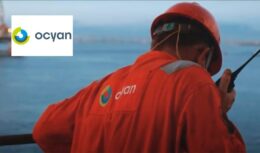
The sale of 51% of the natural gas holding, Gaspetro, confirms that the new CEO is aligned with the divestments of the state oil company Petrobras
The Brazilian oil giant divests of its 51% stake in Gaspetro. The big buyer was Cosan, which controls Compass, the biggest gas distributor in Brazil. The announcement took place yesterday, 28/07, and the sale will fill Petrobras' piggy bank with more than 2 billion reais.
Read also
- Oil reigns in Brazil: rich in natural resources, the country wants to double oil production to become the fifth largest global exporter, going against the grain of the world, which is trying to eliminate fossil fuels in the energy transition
- New technology shields steel from the destructive action of corrosion and revolutionizes the industry worldwide, replacing costly traditional methods of blasting, mechanical treatment and painting, in addition to lasting up to 10 years without the need for shutdown or maintenance
- If the prices of gasoline, diesel, ethanol and cooking gas were not enough, the pockets of Brazilians have to face the skyrocketing price of electricity bills, caused by the biggest water crisis in recent times.
- The Brazilian oil giant chooses the oil company SBM Offshore for the 26-year charter of the largest FPSO platform in Brazil that will be installed in the largest deep-water oil field in the world
Gaspetro holds stakes in 19 gas distributors, which exclusively explore local piped gas distribution services in several states of Brazil.
The Cosan Group, in turn, in addition to the gas and energy segment, operates in the production of sugar, ethanol, bioenergy, distribution and sale of fuels, through Raízen (a joint venture between Cosan and Shell), in the lubricants, through Moove, and logistics, through Rumo.
Mitsiu also wants to sell his 49% stake in the Petrobras subsidiary
Mitsui is a partner of Petrobras, with 49% of Gaspetro. In November, Valor Econômico reported that the Japanese company is considering selling its 49% stake in the Petrobras subsidiary.
“The closing of the transaction is subject to the fulfillment of conditions precedent, such as approval by the Administrative Council for Economic Defense (CADE). In addition, until closing, Petrobras will observe the provisions contained in the shareholders' agreements of Gaspetro and the natural gas distributors, including with regard to preemptive rights, as applicable ”, informed the company in a material fact.
Cosan also controls Comgás, the country's largest distributor, which has one of the state concessions in São Paulo.
Gas distributor Compass, from the Cosan Group, plans to expand infrastructure in SP
Compass is developing two projects to increase the supply of natural gas, with an initial focus on São Paulo: Route 4, to transport domestic pre-salt production, and an LNG terminal at the Port of Santos.
The São Paulo Regasification Terminal, with a regasification capacity of 14 million m³/day, has a total investment estimated at R$ 670 million. The start of operations is scheduled for 2022.
On Route 4, the company intends to be a minority shareholder in the gas pipeline. The idea is to build a pipeline of 21 million m³/day, with a length of 267 km and an investment of approximately US$ 2 billion, starting in 2024, with start-up in 2027, including a processing unit (UPGN).
Raízen of the Shell Group wants to build three plants producing ethanol made from sugarcane bagasse and straw
Raízen, the global giant producing ethanol together with Shell, intends to build three more cellulosic ethanol plants — or second generation. The good news was announced by businessman Rubens Ometto, from Cosan, last Monday (15/03) on Live do Valor.
Cellulosic ethanol is made from sugarcane bagasse and straw. In Piracicaba (SP), the group already has a plant producing this type of fuel, which, according to the businessman, has increased international demand due to the carbon sequestration generated.
“We want to build three plants of this size, with the production of an additional 300 million liters of second generation alcohol”, revealed Ometto. “Companies like Shell, Exxon-Mobil, Total, they all have the greatest interest in acquiring this ethanol given the carbon sequestration it has.”
The technology for producing cellulosic ethanol emerged from a partnership between Shell and the Canadian company Logen, specialized in biotechnology. In the past harvest (2019/20), the Piracicaba unit produced 226 liters of ethanol for each ton of dry biomass













Air Force F-16 fighters…
True friend, what they shot down were…
Air Force F-16 fighters…
I would like to know what planet you live on…
Air Force F-16 fighters…
Everything is fine, 100-year secrecy,…
Air Force F-16 fighters…
Well... It's flying scrap... Typical...
Air Force F-16 fighters…
Which genocide are you talking about? Than…
Before taking the bullet train we need…
I've been waiting for this news for a long time...!!!
I really want to work outside Brazil
If you control boarding times like…
Good afternoon, Work in the Netherlands has…
TO GENERATE ELECTRIC POWER, YOU HAVE TO…
It has up to 1000km/h in final tests in…